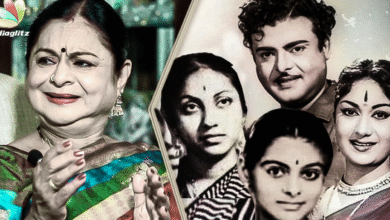
Who Is The Blackest Person In The World
Who Is The Blackest Person In The World: When it comes to discussions about skin color, culture, and identity, curiosity often drives people to explore unique features among human beings. One of the most intriguing and searched questions online is, Who is the blackest person in the world? While this might seem like a superficial query at first, it opens up fascinating conversations about genetics, melanin, beauty, and diversity. The human spectrum of skin tones is incredibly rich, and those with the deepest, darkest complexions are often admired for their stunning uniqueness.
Skin color, especially when it’s intensely dark, is not just about appearance. It represents history, geography, and the power of evolution. So, when we explore who is the blackest person in the world, we’re not just looking at one individual we’re diving into a much larger story that spans science, societal standards, and global appreciation of melanin-rich beauty. Let’s take a closer look at this interesting subject and uncover the truths, myths, and stories behind this seemingly simple question.
Understanding What It Means To Be The Blackest Person
Before diving into names and records, it’s important to define what we mean when we ask, Who is the blackest person in the world. Are we referring to the person with the darkest skin tone ever recorded? Or are we talking about someone whose skin has a unique richness and depth due to high levels of melanin? The term “blackest” is not medical or scientific it’s a cultural term that sparks interest but needs a bit of unpacking.
Melanin is the natural pigment that determines the color of our skin, hair, and eyes. People with higher levels of melanin tend to have darker complexions, and this trait is commonly found among populations from regions with high sun exposure, such as parts of Africa, the Pacific Islands, and South India. So, when people ask who is the blackest person in the world, they’re essentially talking about someone with exceptionally high melanin concentration in their skin. This isn’t just about appearance it’s also a symbol of human adaptability and evolutionary brilliance.
The Viral Fame Of Nyakim Gatwech
One of the most commonly mentioned individuals in conversations around who is the blackest person in the world is South Sudanese-American model Nyakim Gatwech. Known on social media as the “Queen of the Dark,” Nyakim rose to fame because of her exceptionally rich skin tone and her fearless attitude toward societal beauty standards. Her skin is a deep, velvet black that photographs beautifully under almost any lighting, and her Instagram posts have inspired millions to embrace their natural skin.
Nyakim’s story is not just about aesthetics. It’s about embracing identity in a world that often equates beauty with lighter skin. When people ask who is the blackest person in the world, Nyakim’s name frequently comes up not only because of her stunning appearance but because she uses her platform to educate people about diversity and self-love. Her presence challenges conventional norms and redefines beauty standards by celebrating what has often been marginalized.
Debunking The Myths About Skin Color
There are several myths floating around the internet about who is the blackest person in the world. Some claim it’s a mystery man from Africa with “blue-black” skin, while others exaggerate or photoshop images to create viral stories. While these stories grab attention, they often lack real evidence and authenticity. Skin color can appear darker or lighter depending on lighting, editing, and even the surrounding environment, so we must be careful when trusting sensational posts online.
The truth is, determining who is the blackest person in the world isn’t as simple as taking a photo. It involves understanding genetics, pigmentation, and even environmental influences. Melanin is not just a single pigment it’s a complex group of molecules that interact with various biological factors. So while it’s tempting to crown someone the absolute darkest, science tells us there’s a whole range of deeply melanated individuals who could qualify depending on how the term is measured.

The Role Of Genetics In Skin Pigmentation
To understand who is the blackest person in the world, we need to understand how skin color is inherited. Skin pigmentation is primarily influenced by genetics, specifically by genes such as SLC24A5, SLC45A2, and MC1R, which control the production and distribution of melanin. Individuals from regions closer to the equator have evolved to produce more melanin, which acts as a natural sunscreen, protecting against ultraviolet radiation.
The genetic variations that contribute to extremely dark skin are not abnormalities they are adaptations. Populations in countries like South Sudan, Nigeria, and parts of Ethiopia often carry genetic traits that result in high melanin concentration. This is why people from these regions are often in the conversation when someone asks who the blackest person in the world is. Their pigmentation is a powerful reminder of how humans have evolved in harmony with nature over thousands of years.
Cultural Perspectives On Dark Skin
The question of who is the blackest person in the world also intersects with cultural beliefs and attitudes. In some cultures, very dark skin is considered a mark of beauty, pride, and identity. In others, unfortunately, it has been stigmatized or looked down upon due to colonial influence or colorism. The idea of blackness in its literal and figurative sense carries weight that goes beyond simple appearance.
In many African cultures, for example, dark skin is seen as a source of strength and authenticity. Traditional songs, proverbs, and art often celebrate the beauty of melanin-rich skin. On the flip side, globalized beauty standards have pushed many people to bleach or lighten their skin to fit into Eurocentric ideals. So, when someone wonders who is the blackest person in the world, it’s crucial to also reflect on how society values or devalues that blackness.
The Internet’s Obsession With Skin Tone Extremes
There’s no denying that social media has played a massive role in fueling curiosity around who is the blackest person in the world. Platforms like TikTok, YouTube, and Instagram often highlight people with extreme physical features, including very dark or very light skin. While some of this attention can be empowering, it can also reduce people to their appearances instead of celebrating their stories and identities.
Nyakim Gatwech and others who are often associated with this question have used the spotlight to bring awareness to deeper issues. They talk about discrimination, confidence, and the importance of representation. So, while the internet might obsess over who is the blackest person in the world, the conversation becomes much richer when we focus on who they are beyond their skin tone their heritage, values, and contributions to society.
Celebrating The Spectrum Of Melanin
Skin color is not binary. It doesn’t start at white and end at black it exists on a vast spectrum. And every shade tells a story. Asking who is the blackest person in the world is only one way of appreciating the beauty of human diversity. But it’s important to remember that this isn’t a competition. Being the darkest isn’t better or worse than being any other shade it’s simply a reflection of the vast canvas that nature has painted us with.
People with exceptionally dark skin often face unique challenges in society, from discrimination to underrepresentation in media and fashion. Celebrating them isn’t about ranking skin tones but about acknowledging and uplifting those whose beauty has been ignored for too long. Whether it’s through modeling, acting, or activism, many individuals with dark complexions are proudly rewriting the narrative.





